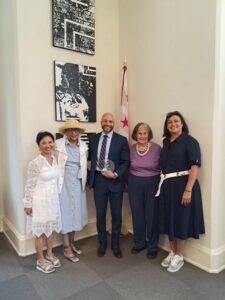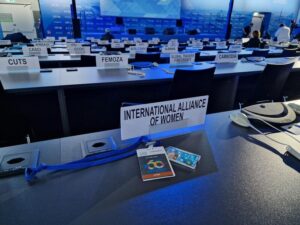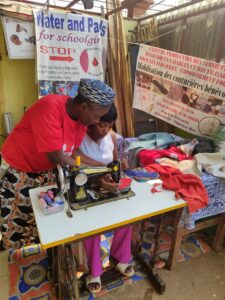 The High-Level Political Forum on Sustainable Development (HLPF) is the main United Nations platform for follow-up and review of the 2030 Agenda for Sustainable Development.
The High-Level Political Forum on Sustainable Development (HLPF) is the main United Nations platform for follow-up and review of the 2030 Agenda for Sustainable Development.
During the HLPF, the United Nations held a meeting with the following title:
Investing and Financing for the Sustainable Development Goals (SDG17-Revitalize the Global Partnership for Sustainable Development): July 13, 2017
This meeting convened to review the current financial plan in place for the 2030 agenda (17 Sustainable Development Goals). There was a quick agreement that this financial plan will not allow us to reach our 17 goals in a timely manner.
Points from the Financing for Development Forum (FFD) document were repeated. This included considering gender equality, figuring out a way to measure the value of unpaid work and its contribution towards the development of the national economy; building infrastructures that are both resilient and reliant and to move towards a more data and evidence based process.
His Excellency Mr. Gebeyehu Ganga, the first panelist, stressed that we are facing difficult political challenges. If we are to accelerate our progress towards the 2030 agenda we need renewed global and political commitments.
Mr. Peter Adriaens, the second panelist, recommended unlocking into private funds-and to transform sustainable financing to mainstream financing. He stated we should focus on systemic economic development, rather than focusing on individual projects and reminded us that aggregating cash flows and different assets is difficult so there is a need to understand it better to manage it better.
Her Excellency Ms. Kajsa Olofsgard, the third panelist, named 3 key issues we are facing: global corporation, a need for partnerships, and a need to be more concrete and specific with our goal setting and planning.
She also appreciated the positive support from the Secretary General and Assistant Secretary General while saying more efforts were needed from the World Bank and Member States.. She also mentioned the importance of women’s empowerment and the need to integrate them and all individuals from discriminated sectors into the official economy.
Ms. Chee Yoke Ling responded to the panelist statements. In her response she warned us to be careful about Public Private Partnerships because of past corruptions. Although these partnerships are needed there should be proper monitoring and methods of accountability. She also called for fairer trade rules; and gave the example of farmers not being able to cultivate certain crops on their own farmlands.
Overall there was an agreement that the path towards the 2030 agenda calls for more commitments, investments and actions. And civil society’s role in all this should be to advocate for a “no one size fits all” policy.
Author:
Rahima Sajid



